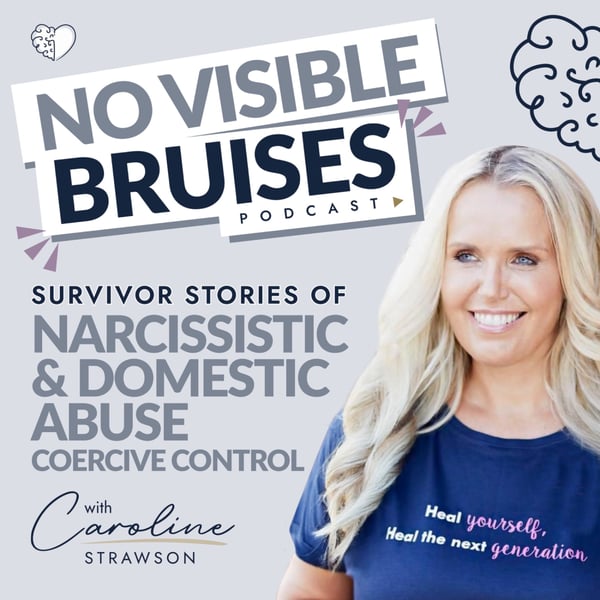Sound Sensitivity, Trauma & Narcissistic Abuse
Trauma & Narcissism Redefined
Caroline Strawson
4.8 • 701 Ratings
🗓️ 11 June 2024
⏱️ 16 minutes
🧾️ Download transcript
Summary
Join the waitlist for my Safe and Sound Protocol program: https://carolinestrawson.com/ssp-waitlist
Do you ever find yourself unable to enjoy the music you once loved or find that your ears are particularly sensitive to loud noises?
You're not alone. This can be a common experience for those who have endured significant stress or trauma. In my case, I experienced this first-hand during my marriage to my ex-husband, who was a covert narcissist.
Over time, I developed a heightened sensitivity to sound. If someone dropped something near me, I wouldn't just startle like most people; I would jump out of my skin. This extreme response is a common consequence of narcissistic abuse and trauma.
In this episode, we will explore:
- What is a heightened startle response?
- How to manage and overcome it
- The biology behind heightened startle responses
- Why we tune out background noise and focus on human voices
Podcast Resources:
- Join my FREE Facebook group at https://www.facebook.com/groups/thriveafternarcissisticabuse
- Access my low cost Narcissistic Trauma Recovery Programme https://go.carolinestrawson.com/heal-the-trauma-of-narcissistic-abuse
- Connect with me on Instagram: https://www.instagram.com/carolinestrawson/
- Find me on TikTok!: https://www.tiktok.com/@carolinestrawson
- My website: https://www.carolinestrawson.com/
Transcript
Click on a timestamp to play from that location
| 0:00.0 | Do you feel like you have a heightened startle response or a really big sound sensitivity? |
| 0:08.4 | Because you've either experienced trauma, narcissistic abuse. |
| 0:13.2 | Maybe you've experienced something and all of a sudden you feel like you can't listen to music |
| 0:17.1 | or you just have this aversion to sound. |
| 0:23.9 | If that sounds like you, you need to listen to today's episode on my trauma and narcissism redefined podcast because I'm going to explain |
| 0:30.3 | what happens in the biology within us why we end up having a sound sensitivity when we've |
| 0:36.9 | experienced trauma and narcissism. |
| 0:41.6 | Hi everybody, my name is Caroline Strawson and I'm here to help and support you through, |
| 0:47.3 | let's face it, trauma and narcissism, but redefining it. So not looking at it like the DSM, |
| 0:54.0 | which is the diagnostic statistical manual of mental disorders, where we're really giving labels to very often symptoms of trauma. I look at this through an internal family systems lens, looking at it from a nervous system perspective. So we actually see people as people as human beings, |
| 1:12.6 | whether that be flawed, which to them is just an adaptive response. And that's a lot of the work |
| 1:19.1 | that I do. A lot of the work that I do is there are no bad parts of you. You have protected |
| 1:24.6 | responses, including narcissists, because they are projecting outwardly because the alternative to go inward, feels too painful to that individual. |
| 1:33.6 | Now, of course, these protective parts and responses can be very, very destructive externally. |
| 1:38.6 | But the key here is we can't change anybody else, but what we can change is how we receive somebody else's protective |
| 1:45.4 | responses and what our interpretation of that is. So in today's episode, I want to talk to you |
| 1:51.2 | about sound sensitivity. A, because it's very relatable to myself and this is what happened to me. |
| 1:57.9 | And also, whenever I tell people this, they always have these lightball |
| 2:02.2 | moments of, that makes so much sense now. I can see that. Now, when I was in a relationship with my |
| 2:08.4 | ex-husband, who was a covert narcissist, I stopped listening to music. I used to love listening |
| 2:15.0 | to music at the start of our relationship and I had an array of |
| 2:18.8 | playlist and I mean this shows how long ago it was you know initially it was like the |
... |
Transcript will be available on the free plan in -289 days. Upgrade to see the full transcript now.
Disclaimer: The podcast and artwork embedded on this page are from Caroline Strawson, and are the property of its owner and not affiliated with or endorsed by Tapesearch.
Generated transcripts are the property of Caroline Strawson and are distributed freely under the Fair Use doctrine. Transcripts generated by Tapesearch are not guaranteed to be accurate.
Copyright © Tapesearch 2025.

